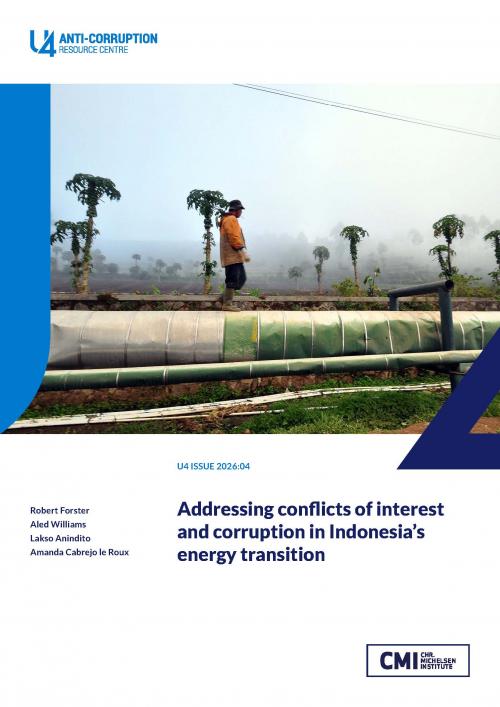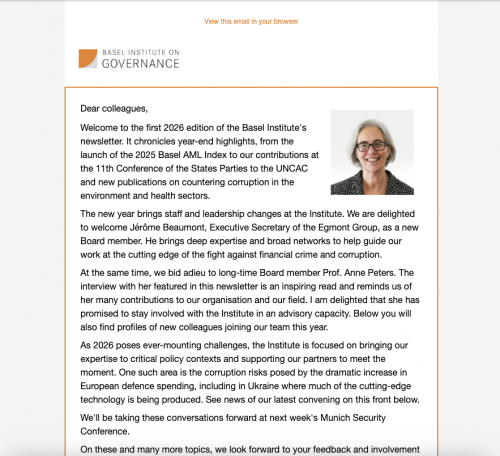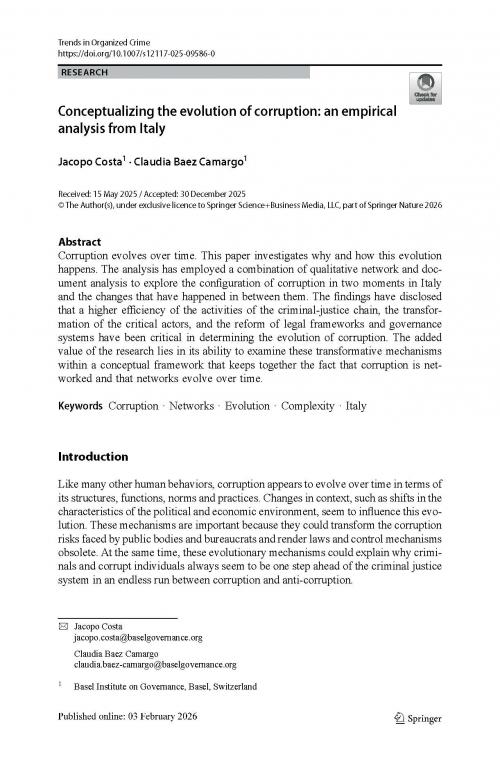Promoting Integrity by Creating Opportunities for Responsible Businesses
Drawn up by the B20 Cross-Thematic Group on Responsible Business Conduct & Anti-Corruption, this policy paper sets out the following recommendations:
Recommendation 1: Establish Beneficial Ownership Transparency – G20 members should increase their efforts to implement beneficial ownership transparency so that risks related to the ultimate owner(s) can be identified.
Recommendation 2: Recognize Compliance Efforts – G20 members should be supportive of a company’s proactive engagement by providing positive recognition of effective anti-corruption and compliance systems.
Recommendation 3: Enhance Responsible Business Conduct in Infrastructure Projects – G20 members should increase transparency and accountability at all stages of the project cycle in order to mitigate the risk of corruption and increase efficiency.
Of particular note is Policy Action 3.3 of Recommendation 3: Support Collective Action
G20 members should promote Collective Action, that are initiatives between different businesses, and between businesses and the public sector, which foster integrity (such as Integrity Pacts and High Level Reporting Mechanisms). G20 should initiate a study that explores joint ways of fighting corruption and misconduct in infrastructure projects.
The fight against corruption is one area that benefits significantly from coordinated efforts exercised as Collective Action. Companies, governments and institutions can come together to mitigate misconduct and combat corruption. B20 has been calling upon G20 members to encourage anti-corruption Collective Action since 2013. B20 facilitates Collective Action initiatives and knowledge-sharing through the B20 Collective Action Hub, which was mandated to the Basel Institute in close partnership with the UN Global Compact in New York in 2013. The platform offers tools and a forum for businesses to take concrete action to jointly step up against corruption and strengthen good business practice. It also pro- vides a space for business and governments to collaborate in this endeavor.
G20 members should support Integrity Pacts (IPs), High Level Reporting Mechanism and other forms of Collective Action (see Exhibit 21,22)70. IPs were developed by TI in 1994 as a tool for promoting integrity in public-sector contracts signaling that the bidder has been selected on the basis of fair criteria and that the execution of the contract is being monitored. They are short-term, project-specific formal agreements between a customer (usually a public entity) and a bidder (usually a company), in which the parties agree to adhere to fairness and transparency and confirm that they will abstain from bribery, collusion and other illicit practices throughout the duration of the contract. IPs include a monitoring system to ensure accountability and also provide for sanctions which may even lead to the exclusion of the company from further invitations to tender.



